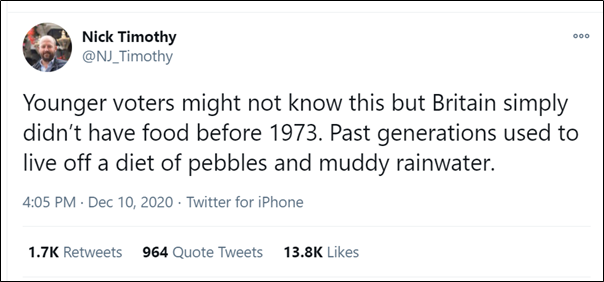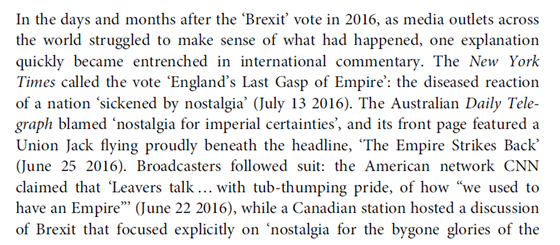
The Brexit negotiations have been such a disaster because Britain never had a serious debate about what it most wanted to achieve. Instead, ministers spent years pretending no trade-offs were necessary. We could have everything we wanted, if we only had the courage to believe.
Ministers boasted, repeatedly, that we could have unlimited sovereignty, frictionless trade, full access to the Single Market & "the exact same benefits" as the CU. Compromise was not a way to achieve the things we most valued, but a surrender of our ability to have it all.
As Ben Jackson wrote in 2019, Conservatives have drawn a dangerous lesson from the Thatcher years. "Compromise" and "negotiation" are dismissed as signs of weakness, not as a way to achieve the most advantageous outcome in a world we do not control. onlinelibrary.wiley.com/doi/full/10.11…
To that mindset, the trade-offs necessary to achieve a "soft Brexit" could only be understood as an act of cowardice. Instead of viewing compromise as a way of securing the best achievable form of Brexit, anyone who went down this path was viewed as a "Remainer" and a "saboteur".
In a different mental universe, a negotiated Brexit that sought the best achievable balance between autonomy & economic access might have been regarded as a success: something to which govt aspired. Instead, it was presented as an unnecessary derogation from some Platonic ideal.
If everything is a red line, only two outcomes are possible: no deal at all, or a thin deal that's denounced as a betrayal by the very people who were told concessions were unnecessary. Brexit has been a giant exercise in hubris. As a Classicist, Johnson should know what follows.
• • •
Missing some Tweet in this thread? You can try to
force a refresh









